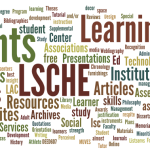2003 – CRLA Tutor Training Handbook

CRLA has agreed to have these classic, foundational articles for tutor training be available free of charge. These are now provided on the web below and can be copied to be used for tutor training without copyright concerns. If using, please include the following citation below. A special thanks to Yuting Lin (Texas State University, Doctoral Student, 2014) for scanning this book with permission for LSCHE.
Citation:
Deese-Roberts, S. (Ed.). (2003). CRLA: Tutor training handbook (Rev. Ed.). College Reading and Learning Association. Retrieved from LSCHE.
We have links to each of the chapters, articles, and essays listed here as individual files to open or as one download of a zipped (compressed) file:
Download the full 2003 CRLA Tutor Training Handbook in one PDF file (all at once, 36 MB)
A: Cover (PDF)
B: Preface (PDF)
C:Table of contents (PDF)
D: Acknowledgements (PDF)
——–
E01: Tutoring an integral part of a learning/reading/writing center (PDF) by Tom Gier
E02: Planning a tutor training program (PDF) by Elaine Wright
E03: Maintaining an effective academic support program with the training cycle (PDF) by Kenneth W. Gattis
E04: Is it possible: A two-day tutor training class (PDF) by Susan Knepley
——–
E05: Establishing a helping relationship: Self-discovery (PDF) by Russ Hodges & Thelma Duffey
E06: Training tutors through tutor role analyses (PDF) by Mark S. May
E07: What supplemental instruction tells us about effective tutor training (PDF) by Kenneth W. Gattis
E08: Role-playing for tutor training (PDF) by Kathy Carpenter
——–
E09: Say again! Training tutors in cooperative tutoring (PDF) by Gladys R. Shaw
E10: Establishing a helping relationship: Facilitating non-verbal and verbal communication (PDF) by Thelma Duffey & Russ Hodges
E11: Tutor safety: An essential component of new tutor training (PDF) by Sarah Henderson
E12: Addressing diverse audiences: Tutoring the underprepared student (PDF) by Helen Baril
——–
E13: Non-traditional age students (PDF) by Judith S. Craig
E14: Andragogy: Appreciating the characteristics of the adult learner (PDF) by Donna Wood
E15: Training tutors to work with international students (PDF) by Carol R. Lyan
E16: Assisting the test-anxious student (PDF) by Lesley Jones
——–
E17: An introduction to critical thinking (PDF) by Elaine Batenhorst
E18: Training tutors to be supervisors and trainers (PDF) by Gladys R. Shaw
E19: Referral skills (PDF) by Penny A. Kelley
E20: The four knows of content-area tutoring: A handbook for tutors (PDF) by Shawn M. Ford
——–
E21: Subject-area tutor training (PDF) by Robin Melton
E22: Study skills with emphasis on math and science (PDF) by Helen Baril
E23: The math professor and the math tutor: A marriage made in_heaven (PDF) by Helen Baril
E24: Codependency: A vicious cycle for tutors (PDF) by Rosa Hall
——–
E25: Ingredients for a good tutoring session (PDF) by Tom Gier
E26: Techniques for successfully beginning and ending a tutor session (PDF) by Penny A. Kelley
E27: The tutor recipe book: Ingredients for successful and healthy tutoring for the tutor and the tutee (PDF) by Karan Hancock
E28: Tutoring tips (PDF) by Tom Gier and Karan Hancock
——–
E29: Technology and the tutor: Computers as tools to assist student writers (PDF) by Angela M. Gulick
E30: Helping students with papers in different disciplines (PDF) by Patricia Linton and Genie Babb
E31: How tutors can help tutees improve their critical thinking (PDF) by Suzanne Forster
E32: A tutor’s guide to the writing process (PDF) by Dorothy Williams
——–
E33: How tutors can help tutees improve their concentration (PDF) by Becky Patterson
E34: A tutor’s guide to the textbook reading process (PDF) by Olga Winbush
E35: Reference information for tutors: Textbook survey & reading for information (PDF) by Tom Gier
E36: Evaluation! Evaluation! Evaluation (PDF) by Dorothy Weber
——–
F: Appendix: Tutor training certification information (PDF)

